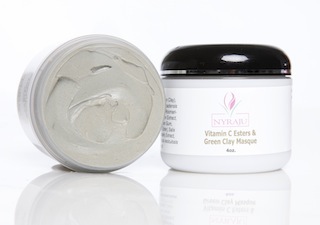
Every Woman of Color wants clear, even skin – a glowing complexion that’s smooth and free of blotchy pigmentation. But there are healthy ways – and awfully unhealthy ways – to go about getting outside assistance. The most popular “go to” measure for fading darks spots and blemishes is, in fact, possibly the most risky way to go.
Hydroquinone is the ingredient that’s commonly found in skin lightening creams, both over-the-counter and in higher concentrations, prescribed dermatologist and plastic surgeons. Also called “skin bleach,” it’s used to fade dark marks and treat hyperpigmentation. Hydroquinone, quite simply, is a melanin cell blocking chemical.
However, the sale of hydroquinone-based skin lightening creams has been banned in most parts of the world. It has, in fact, been banned in parts of Europe and all throughout Asia. Here’s why:
Studies have shown that prolonged use of hydroquinone can cause a condition called Ochronosis. This is a condition where the skin develops thick, dark patches or even blue-black skin.
Hydroquinone is also believed to be is carcinogenic, causing cancer. This has been a result found in laboratory tests on rodents, but there isn’t unanimous agreement internationally about this being the case for humans.
In a 2008 interview with ABC News, noted dermatologist Fatimata Ly of Dakar, Africa, stated this about how hydroquinone is devastating women in her homeland: “We have diagnosed the first cases of skin cancer with women who have been using those (skin bleaching) creams for a long time.”
Ly and other experts also cite as common serious skin infections, acne and unusual facial hair growth among the other side-effects that African women face. Yet, skin bleaching is still on the rise across the continent, despite campaigns to raise awareness of the dangers.
In the United States, things are only a little better. You can still buy creams containing low concentrations (up to 2%) of hydroquinone over the counter. You can also obtain higher concentrations by prescription (around 4%).
In 2006, the FDA proposed a ban on over-the-counter (OTC) sales of hydroquinone products due to studies in rodents that indicated that hydroquinone may act as a carcinogen. Currently, the FDA still is “reviewing” the matter and has yet to make a final ruling.
Natural Skin Lighteners That Work
No one says that maintaining a fresh appearance is easy, but it most certainly shouldn’t be potentially deadly! If you want a skin lightening cream that’s safe to use for more than a few weeks, you’re better off using some of the natural alternatives to hydroquinone-based bleaching creams. Luckily, there are safe and effective alternatives.
Natural skin lighteners that work well are products containing one or more of the following ingredients:
- Kojic acid,
- Licorice extract,
- Mulberry,
- Arbutin (Bearberry extract),
- Lactic acid, found in NYRAJU Skin Care’s Green Tea Facial Cleanser and
- Citric acid found in NYRAJU Skin Care’s Vitamin C and Green Clay Masque.
When you decide to try a skin lightener, first check the ingredients list for the aforementioned. Also note that in addition to hydroquinone, both mercury and steroids are found in some skin lightening treatments. We’ve discussed the very dubious side-effects of hydroquinone, but be aware that mercury can poison the blood and steroids cause the skin to thin and can cause stretch marks.
So, do choose wisely when trying to create a more youthful, blemish-free face. Your vision of loveliness is achievable, but it can be toxic and exacerbate matters if you opt for anything other than the natural path.
To Your Beauty,
Juliette Samuel
Publisher/Esthetician
NYRAJU Skin Care
http://www.nyrajuskincare.com/face.html




 Facebook
Facebook Twitter
Twitter Delicious
Delicious Digg
Digg Myspace
Myspace StumbleUpon
StumbleUpon Youtube
Youtube